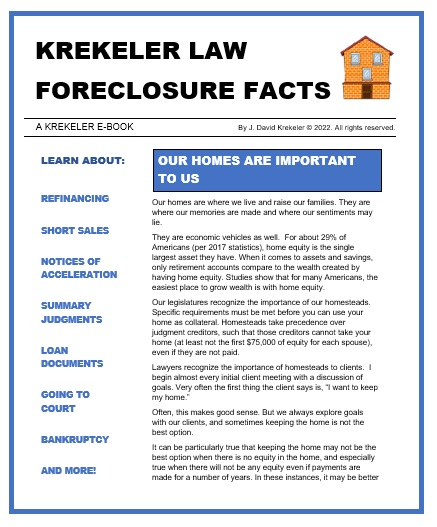Active duty military members often encounter unique troubles when serving away from the place they once called home, Congress recognized these problems and in 1940 passed the Soldiers’ and Sailors’ Civil Relief Act (SSCRA). This law was meant to help a soldier who may be overseas, fighting in a war, unable to focus on a legal problem or pay a bill he incurred a couple years earlier.
The law was amended and modernized over time, and in 2003 the most recent version came into being. Simply put, the Servicemembers Civil Relief Act (SCRA) provides financial and legal protection for active duty service members.

This act grants servicemembers an extensive list of rights and benefits. For instance, it:
- Suspends civil claims for matters like divorce, child support cases, and foreclosures, allowing matters to be delayed up to ninety days
- Protects against default judgments on bills incurred before the person entered the service, and requires that a judge appoint a lawyer to represent an absent servicemember or grant a delay if the servicemember needs to be in attendance
- Prevents against eviction from a mortgaged property, stating that “No sale, foreclosure, or seizure of property for nonpayment of a preservice mortgage debt is valid if made during or within nine months after your service on active duty, unless carrying out a valid court order.”
- Prevents against eviction from a rental property, stating and that servicemembers and their families can’t be evicted for nonpayment of rent without a court order
- This non-eviction rule is enforceable regardless of what the rental agreement or local laws say
- This protection only applies to residences where the monthly rent is below a certain amount. In other words, if someone rents a luxury apartment that is above and beyond their means, this rule may not apply.
- The court will either grant a delay in eviction proceedings or adjust the lease obligations in a way that all parties involved can agree upon.
- Prevents property from being repossessed for nonpayment or for a contract terminated for payment gaps prior to or during military service
- Caps interest rates on debts incurred prior to entering the military at 6%
- Reduces interest rates
- Creditors must reduce the interest rate on debts to 6% for liabilities incurred before the serviceperson entered active duty
- Creditors can challenge this rule if they believe the servicemember is able to pay a rate higher than 6% or that the servicemember’s inability to pay is not materially affected by his or her military service
- If the debt is a mortgage, this new reduced rate extends for one year beyond active-military service
- The reduced interest rate also applies to the following:
- credit card debt
- automobile loans
- business obligations
- some student loans
- some other debts
- some fees, service charges, and renewal fees
- Protects against the cancellation of life insurance
- Protects against the non-reinstatement of health insurance policies
- Allows military professionals who would normally have malpractice or liability insurance to suspend these insurance premiums
- Prevents taxation in multiple jurisdictions
- Prevents forced property sales as a means of collecting for overdue taxes
- Defers taxes without interest or penalties
- Protects active duty small business owners, protecting their nonbusiness assets and military pay from creditors trying to collect on their business debts and obligations
- Allows phone contracts to be terminated for those who entered a contract before receiving military orders to relocate
- Allows automobile leases to be terminated, if certain circumstances are met
- Extends state voting rights to servicemember and their spouse
Here’s what the SCRA cannot do:
- Forgive of all debts (Only bankruptcy can do this.)
- Void contractual obligations
- Provide absolute immunity from civil lawsuits
- Suspend criminal claim proceedings
These rights are all granted based on need and on the servicemember initiating that action be taken. They are not automatically put into effect. Those who need to receive the benefits of this act will need to meet certain obligations showing they’re “materially affected” by military service.
The SCRA is only for active-duty service members, including National Guard and reserve members and their families. This act does not apply to veterans. Whether a servicemember is “materially affected” can mean different things in different situations.
The specific details about all these benefits, eligibility, and how to claim them may require some legal guidance. If you or someone you know could benefit from this act but you need more information, please contact us today.
Thank you to Chad Koplien, Chief Legal Counsel at the Department of Veterans’ Affairs, for providing the following recommended resources:
For general information on your federal or Wisconsin state Veterans benefits, programs and services, access and register at https://applications.dva.wisconsin.gov/myWisVets, or contact the Wisconsin Department of Veterans Affairs at: email: wisvets@dva.wisconsin.gov; and phone: 1-800-WIS-VETS (947-8387).
For assistance in filing a Veterans disability claim or exploring questions of whether you are eligible, contact your County Veterans Service Officer, Veterans Service Organization (can be located here: https://dva.wi.gov/Pages/benefitsClaims/VSO.aspx) or the Wisconsin Department of Veterans Affairs Claims Office at: email: WDVA Claims Office; phone: (414) 902-5757; website: https://dva.wi.gov/Pages/benefitsClaims/WDVAClaimsAssistance.aspx; and WDVA Claims Assistance Brochure.

